Instrument Geometry
Why do various Instruments use different Geometry, and which is the best for a specific application?
There are several solutions offered by various Instrument vendors. It is important to understand that sometimes for a specific type of sample more than one has to be selected. Parallel measurement tracking might be the only practical solution. Color Expert has to understand the basic properties of the following cases:
1. 0°/45°, 45°/0° — Basic Geometry for Print Industry
Almost all press-side instruments use one of the following schemas. Three variants are generally similar one to another but 45°/0° Annular brings the best accuracy, however sometimes declared by instrument's vendor annular is technically
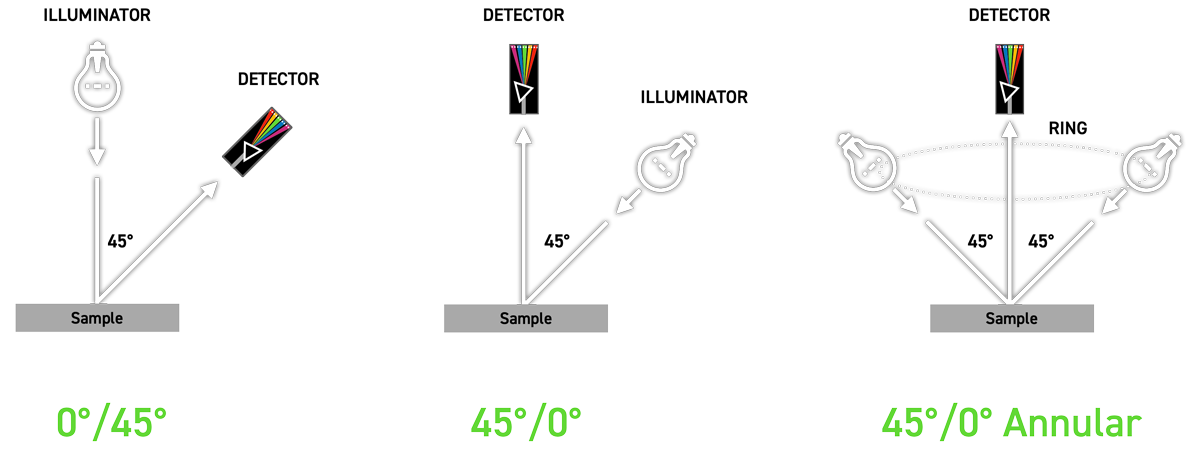
This geometry is efficient for matt surfaces only. Glossy or irregular surfaces reflect light depending on the type - the final color readings are affected by additional parameters.

| Matt surface | Glossy Surface | Irregular surface |
Whenever printing is performed on the metalized substrate, film, or final product has sophisticated finishing like structural varnish, or /and is calendered or/and as a result of postproduction the final surface is not flat and matt finished — regular printing spectrophotometer may not work properly.

| a Lambertian reflector |
a smooth surface, |
a roughened aluminum surface |
a glossy paper |
(based on: Fundamentals of Optics and Radiometry for Color Reproduction, Mathieu Hébert, Roger D. Hersch, Patrick Emmel, hal-01179588.)
2. Multi-angle Geometry
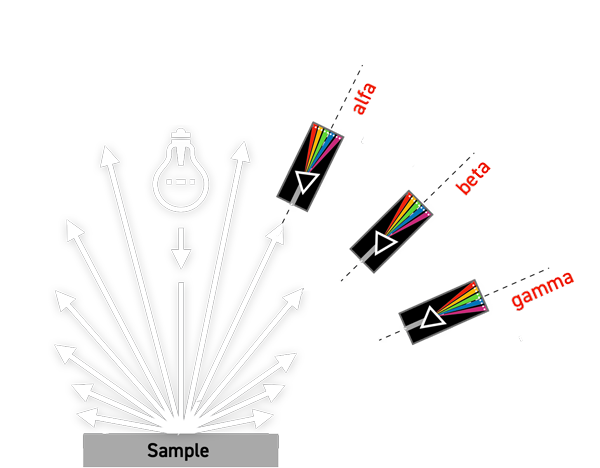
For some paints and surfaces with pearlescent and metallic effects, a series of measurements are made using different angles instead of a single one. In practice, multi-angle instruments sometimes come with more than one illuminator set at a different angle too.
Example instrument:
X-Rite MA-T12 offers 12 measurement angles (6 illumination sources, 2 pick-ups)
3. Spherical Diffusion Geometry (Automotive, Paints, Plastics, ...)
In Spherical Diffusion Geometry instead of a single direction, the sample is exposed by a spherical chamber that mixes light finally using all possible directions.
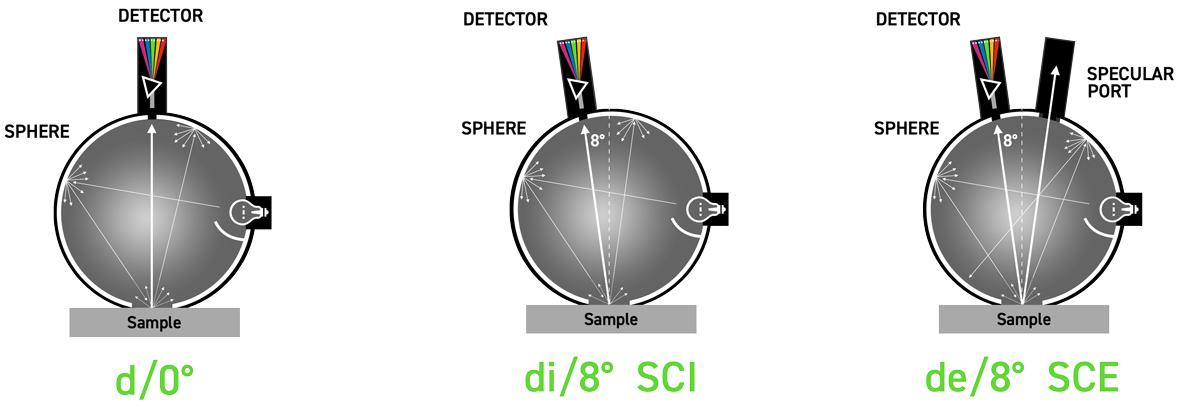
Example Instruments:
- Spectro 1 PRO by Variable - d/0° SCI
- ChromaChecker DS-700D d/8° SCI, SCE
4. Transmissive • Single Angle
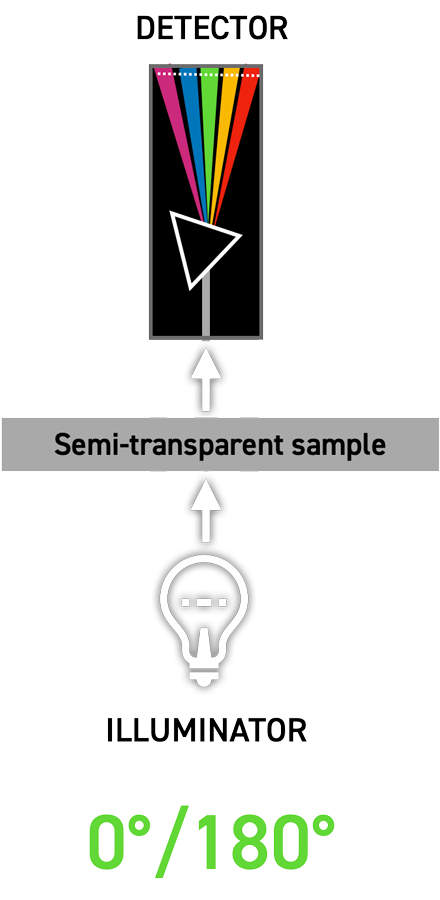 |
Example Instruments:
- Barbieri LFP (switachable aperture)
- X-Rite i1iO v3. (require additional 3rd party lighting panel)
5. Emission
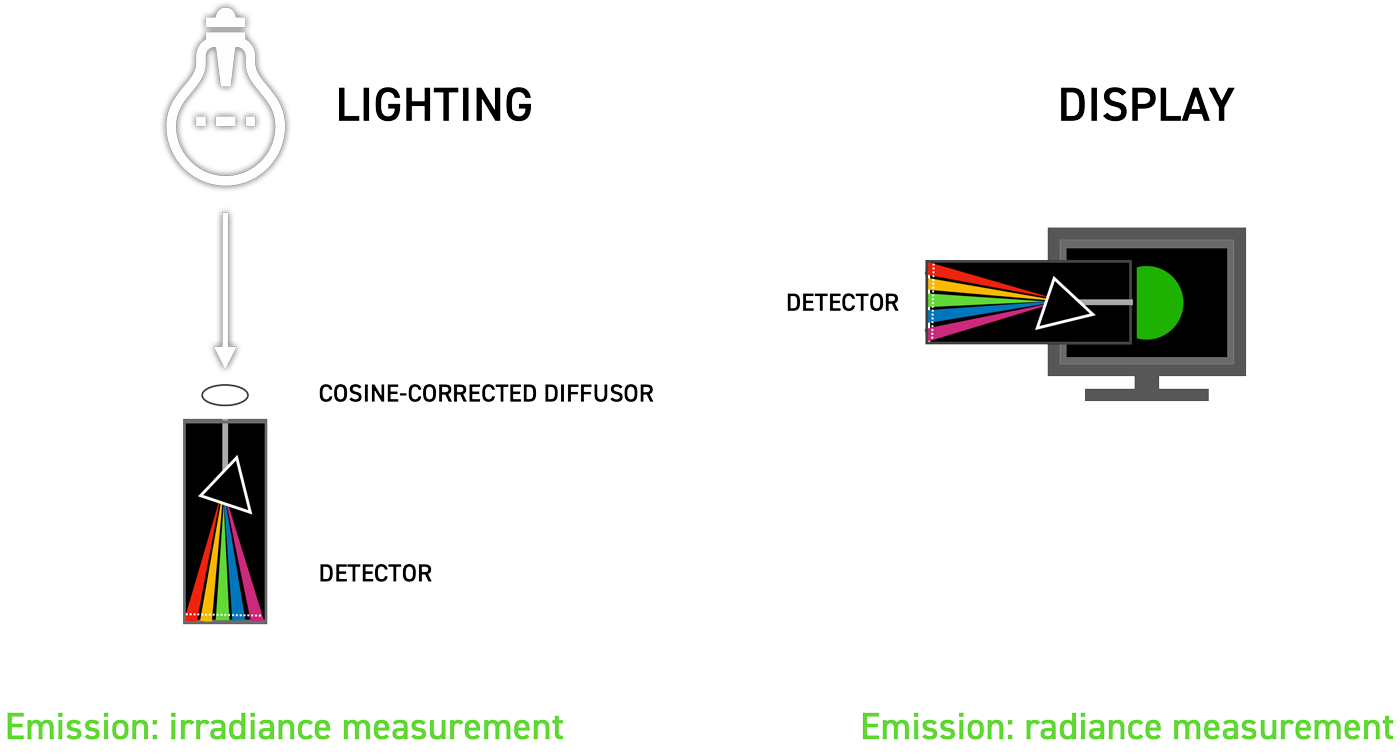
Contact ChromaChecker Support
Additional information and Support Form is available for logged users.